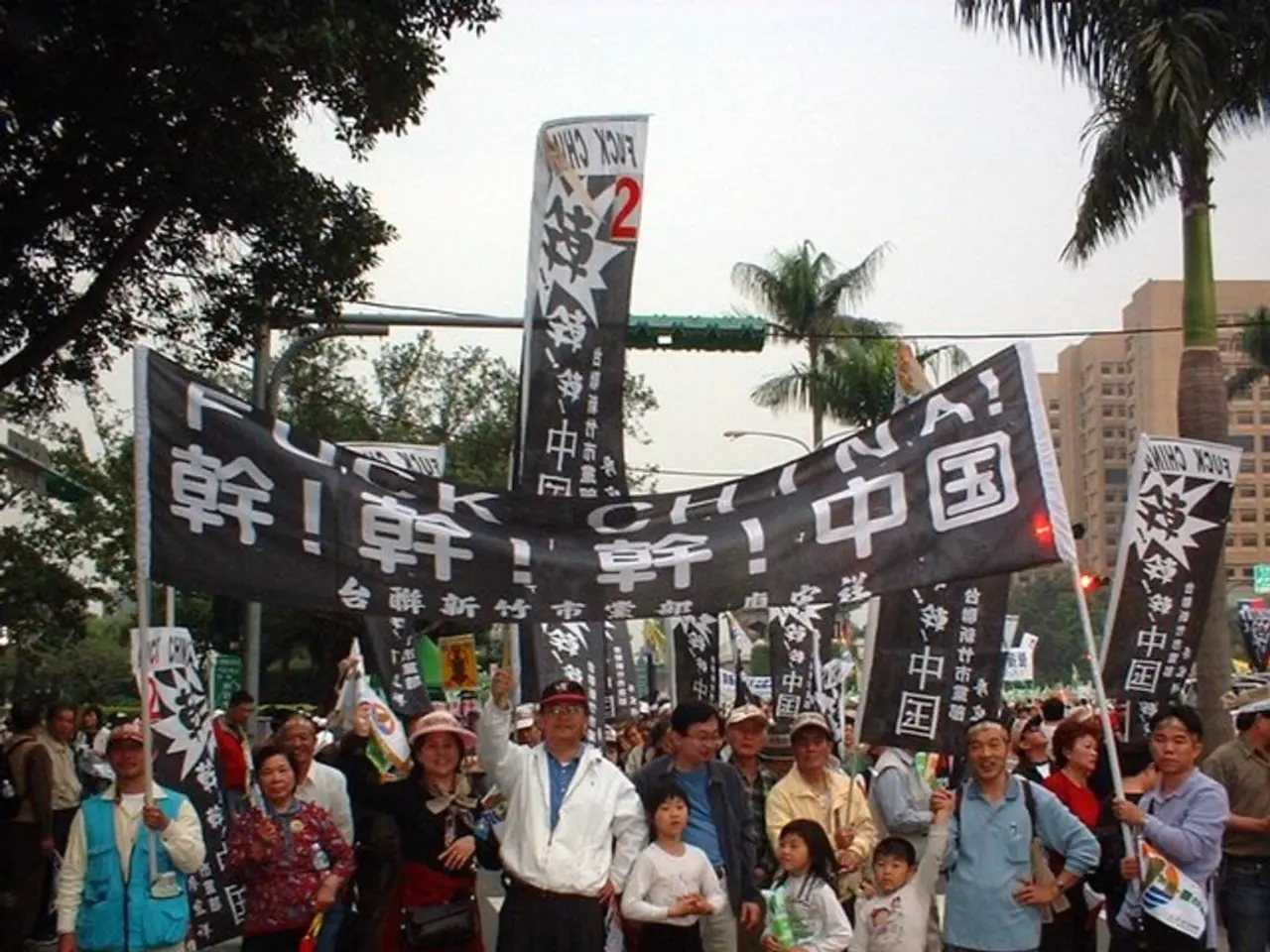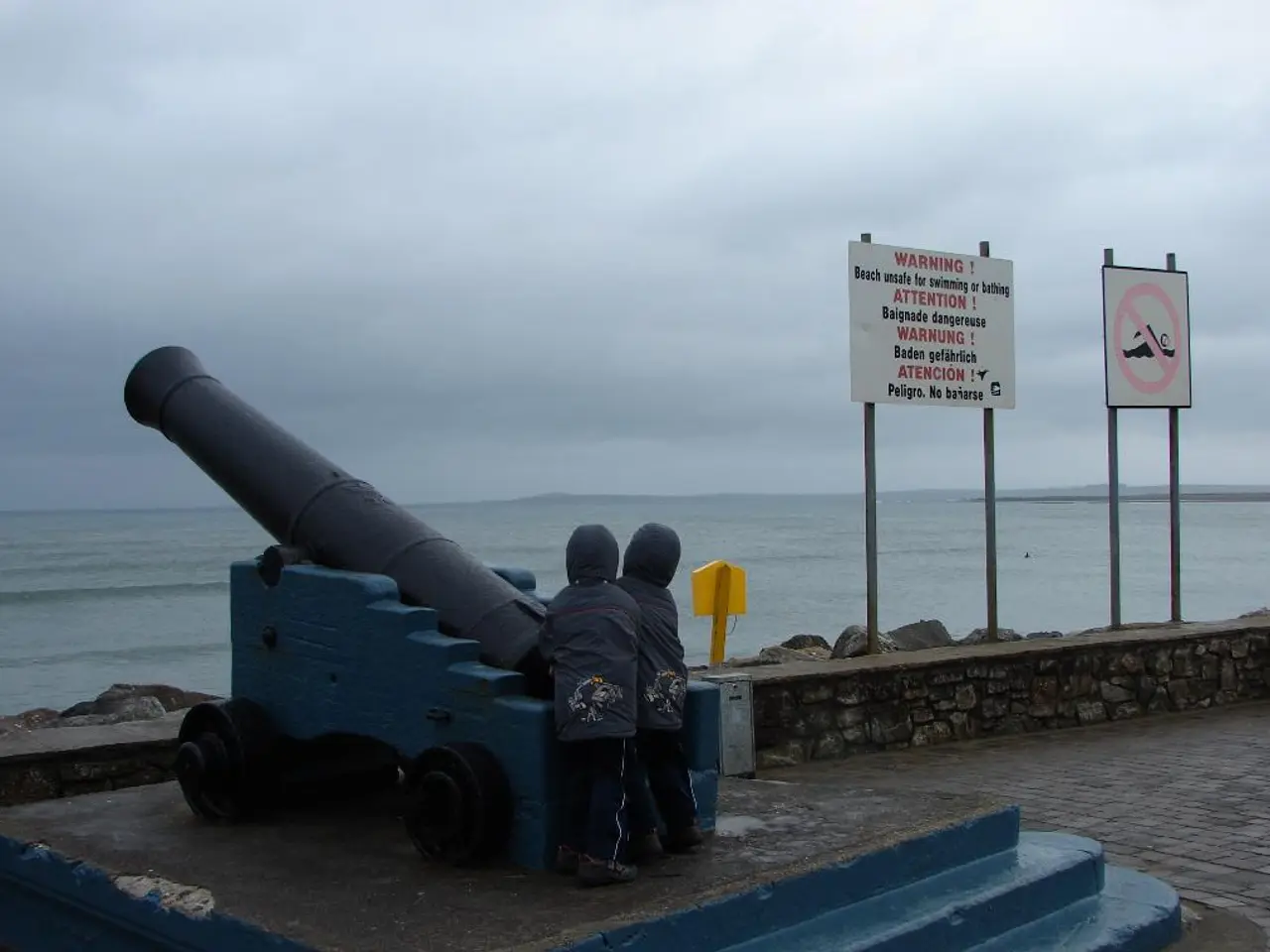Suspended Labour politicians and the reasons behind the withdrawal of their party membership
In a dramatic turn of events, four Labour MPs have been suspended from the party for repeated breaches of party discipline, pending a future review. The MPs, Brian Leishman, Chris Hinchliff, Neil Duncan-Jordan, and Rachael Maskell, were suspended by party leader Sir Keir Starmer following their votes against the government on key issues such as welfare reforms, the winter fuel allowance, and planning policies.
The suspensions have sparked controversy within the Labour Party, reflecting the tension over party discipline and the approach to government policies under Starmer's leadership.
Brian Leishman, the MP for Alloa and Grangemouth, was first elected in the last general election. A member of the Socialist Campaign Group within Labour, Leishman has been vocal in his criticism of the party for not doing enough to save the Grangemouth oil refinery and has rebelled against votes on the Winter Fuel Allowance and welfare reforms.
Chris Hinchliff, the MP for North East Hertfordshire, won the constituency for the first time since it was established in 1997 and led a rebellion on planning reforms. His stance highlights his commitment to challenging government policies when they differ from his constituents' interests.
Neil Duncan-Jordan, the MP for Poole, was elected in the 2024 election and won his seat from the Conservatives by a margin of 18 votes, marking the first time Labour had won in the constituency. An outspoken critic of proposed cuts to welfare and disability payments, Duncan-Jordan has been vocal about his opposition to certain government policies affecting his constituents.
Rachael Maskell, the MP for York Central, has been a vocal critic of welfare cuts and the two-child benefit cap. She tabled a wrecking amendment aimed at killing the government's welfare bill, showing her strong opposition to welfare reforms. Maskell stated that she will never give up the fight for the poorest people in society, which is why the Labour Party was created.
All four MPs were involved in significant rebellions against the government's policies, particularly in the welfare reforms, which led to a significant watering down of the proposed changes. In response to losing the whip, Neil Duncan-Jordan stated, "I understood this could come at a cost, but I couldn't support making disabled people poorer."
The four MPs, now suspended, will sit as independent MPs. In a statement, Brian Leishman expressed his commitment to the Labour party and his desire to remain a Labour MP. Maskell, on the other hand, stated, "The reason I have been suspended is because I voted in the way I did. I believe I am fighting for people that really matter, the poorest people in society."
These suspensions come at a time when there is growing discontent within the Labour Party over the party's approach to government policies and the role of backbenchers. Earlier this month, Maskell expressed her desire for a greater recognition of the role of backbenchers in the heart of the party.
The suspensions have raised questions about the future of the Labour Party and its ability to balance party discipline with the need to represent the interests of its MPs and constituents. The suspensions are a clear indication of the challenges facing the Labour Party under Starmer's leadership.
[1] Source: The Guardian [2] Source: Sky News [3] Source: BBC News
- The controversies surrounding the suspensions of four Labour MPs, who were involved in significant rebellions against the government's policies, have ignited discussions about the party's policy-and-legislation approach under Sir Keir Starmer's leadership and the tension over party discipline within the Labour Party.
- The general-news outlets report that war-and-conflicts within the Labour Party over the approach to government policies and the role of backbenchers may threaten the future of the party, as the suspended MPs, including Rachael Maskell who has been vocal about welfare cuts, now sit as independent MPs and question the party's ability to balance party discipline with the need to represent their constituents' interests.
- The crime-and-justice aspect unfolds as the suspended Labour MPs, such as Neil Duncan-Jordan who opposes proposed cuts to welfare and disability payments, argue that their suspensions are unjust, believing they are fighting for the poorest people in society, which is the primary purpose of the Labour Party, as Maskell asserted.








